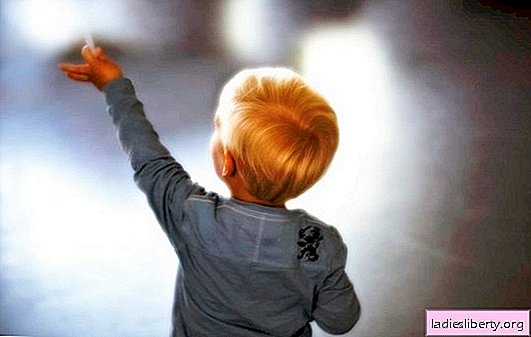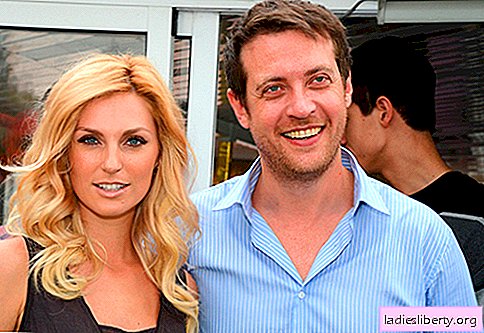
According to researchers in the field of children's behavior, for children aged 3-5 years it is common to think of imaginary friends, this is a natural phenomenon, because at that time their imagination is booming.
Such behavior indicates that the child is actively fantasizing, developing creative potential in a special period of the psychological formation of the personality.
As the results of recent studies show, more than 50% of preschool children (up to 7 years old) have imaginary friends, they can be ordinary people, a superhero, a fantastic creature, animals, characters of fairy tales.
It is proved that such children are ahead of their peers in the development (intellectual, creative); they are more sociable, less shy, having a high level of social perception (involving self-knowledge, perception and appreciation of the people around them, establishing contacts in the team during joint activities).
Scientists from the UK have revealed an interesting feature: a child entering into dialogue with his imaginary friend develops a part of the brain that is responsible for solving difficult tasks, puzzles, as well as for planning and overcoming life's difficulties.
And this is understandable, because such involvement of the baby in the role-playing game has a favorable effect on many aspects of development.
Why do imaginary friends appear
In most cases, the child acquires an imaginary companion in specific situations: when he is bored, he is lonely, or had to part with his real friends for a long time; so the baby compensates for the lack of communication. There are cases when an imaginary friend appeared in a child (even as a teenager) as a reaction to a traumatic event: the death of a loved one, forced relocation, divorce of parents, birth of a brother or sister. Some mothers noted that an imaginary friend accompanied the baby everywhere. Through fictional friendship, many children's needs are met, so the child can share the innermost: grievances or joys, entrust a secret, confess something; he learns to experiment with various patterns of behavior, and this in turn helps to reduce anxiety, guilt.
Attention! If the child does not tell you about his hero, this indicates that he does not trust you, and may even be afraid.
An appeal to an imaginary friend may serve as a kind of “rehearsal” of what he wants to say to his parents and relatives; in this case, he speaks the words, understanding that the “friend” will not interrupt him, stop him, argue (until he himself wishes it). Accusing the "friend" of his failures and troubles, he thereby gives vent to his emotions, not knowing another way to express them.
Some children see their second “I” in an imaginary buddy, for example, in a shy kid, a “friend” will be cheerful, noisy, bold, self-confident, while a decisive, energetic child, on the contrary, will invent a shy “friend” who will become protect.
If the child has too strict and demanding parents, he comes up with a “friend” who gets along well with him and is always happy with him.
The emotions and impressions received by children in communication with their “special friends” are similar to those that we experience in the process of reading a good book, watching an exciting blockbuster.
In the course of the development of events, we empathize with the hero, worry whether he can get out of a difficult situation; however, at this moment we realize that all the events unfolding in the film are fictitious, and the reality is that we need to inspect it and go to bed, because tomorrow morning we will warm up the car again and go to work (each has its own beginning of the day !)
In families with one child, a similar phenomenon (or Carlson's syndrome) is more common compared to those families where two or more children are raised. However, it is still generally accepted in society that the appearance of invisible friends is a serious cause for concern, and almost a symptom of a mental disorder, even schizophrenia.
Meanwhile, having noticed something unusual in the behavior of the child, do not rush to panic, sound the alarm, go in search of a psychologist, because, as a rule, the kid realizes that he himself made up a friend.
It is important to understand that after a certain time the need for such a relationship will disappear, he will outgrow it when he starts attending school, but on the condition that you do not rush this process, intervene in it, dictate your own rules.
Let events take their course.
Psychologists strongly advise not to prohibit the child from communicating with a fictitious friend, otherwise such meetings will occur secretly, the child will carefully hide this.
The baby has Carlson syndrome: what to do?
If you have a desire to take part in the game of your child and to train your own imagination, do not forget to ask him for permission; If your address is denied, give your child the opportunity to play alone.
Many parents admitted that they periodically had a strong desire to tease their baby, they even tried to control his non-existent friend, but this is extremely undesirable to do. It is important to understand that the wrong reaction of parents can make a child go even deeper into a fantasy world. It is enough for the child to make it clear that you know that his friend is a fake.
Communicating with the child on this topic, avoid reproaches, speak in a soft, encouraging tone, without playing up, the child may feel that you are deceiving him or manipulating him; it is appropriate to praise the child: "It's great that you have such an opportunity to come up with a friend, in any situation, when you want!".
Ignore the sudden occurrence of a fictitious friend, scolding a child, yanking is not desirable, otherwise he will shut himself in, forget how to dream, stop trusting you. However, it is not worth it to initiate games with an invisible friend.
Moreover, to connect an imaginary hero to joint activities that you periodically spend with a child (reading books, watching cartoons, board games, walking in the park); the kid himself must remember him.
Do not allow children to shift the responsibility for their wrong actions, offenses to fictional friends. Each time, remind them that they alone should be responsible for misconduct.
The child has an imaginary friend: when to sound the alarm
Watching how a child plays an imaginary friend, you can identify his emotional problem, worries, fears. So, for example, if his non-existent friend is upset and even cries because someone offended him, it is likely that he is not this “friend”, but the kid himself was in a difficult situation, he saved the offender. In this case, you can advise an imaginary friend: tell this problem to parents. After the kid shares his feelings with you, do not give yourself away, but assure him: “I know you would do the same if you were the place of your“ friend. ”Thus, you will have the opportunity to give recommendations to your child indirectly, through a fictitious friend Moreover, if the child is not ready, he will not have to reveal his feelings.
Contact a specialist for qualified help only in certain situations:
1) a destructive moment appeared in the relationship between your baby and his imaginary friend (he began to quarrel with him, express aggression, cruelty);
2) the child developed a dependence on a "friend", he began to eat poorly and sleep anxiously;
3) these relations began to impede the true friendship of the child with peers;
4) he began to confuse reality and the game.
Sometimes Carlson’s syndrome smoothly migrates into adulthood, and a mentally healthy person makes friends with a new, more mature character, or “takes” an old imaginary friend with him.











